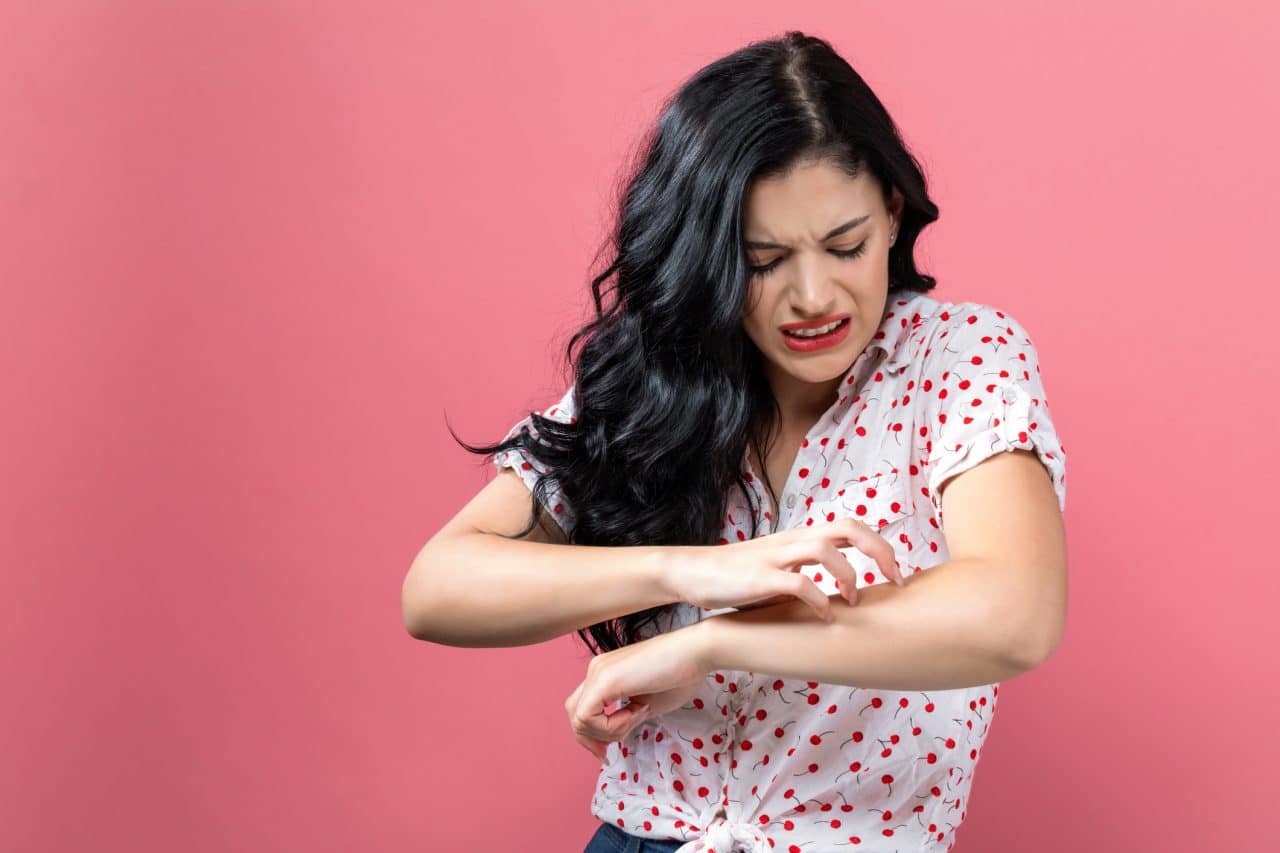You can blame allergies for a lot of things, like itchy eyes, runny nose, sneezing, wheezing and scratchy throat, to name a few. Skin problems are another complaint you may be able to add to the list. Below is an overview of how allergies affect skin, how allergy-related skin problems can be prevented and the best course of treatment.
How Do Allergies Affect Skin?

There are several ways the skin can be affected by allergies. For one, histamine causes inflammation, which can cause the skin to become more sensitive.
According to Dr. Marie Hayag, board-certified dermatologist and founder of Fifth Avenue Aesthetics, “Our skin can react to allergens, causing hives, scaly patches, and eczema… These skin reactions may be painful and itchy, causing you to scratch and damage your skin, which can lead to scarring or prolonged skin sensitivity.”
It’s also important to note that people with seasonal allergies are simply more likely to experience to skin irritations. Dr. Joshua Zeichner, director of cosmetic and clinical research in dermatology at Mt. Sinai Hospital, explains, “In predisposed people, exposure to allergens in the air can lead to widespread allergic skin rashes.”
In the same vein, people with skin problems like eczema during childhood are more likely to develop seasonal allergies later in life, according to some studies. “We know that there’s a link between sensitive skin and eczema, asthma, and seasonal allergies. These three conditions genetically run together and are known as an atopic diathesis,” said Dr. Zeichner.
Preventing Allergy-Associated Skin Problems
The best thing you can do for skin problems caused by allergies is to try to avoid the allergen altogether. While this is usually not entirely possible, there are many strategies for reducing your exposure. For example, you can:
- Stay indoors when pollen counts are high.
- Keep windows closed and air-conditioning on.
- Wash sheets and pillowcases in hot water weekly.
- Use dust mite-proof covers on mattresses.
- Reduce stress to decrease levels of histamine in the body.
- Use fragrance- and dye-free skin products.
- Avoid harsh ingredients like parabens, retinoids, alpha and beta hydroxy acids, gritty scrubs and benzyl peroxide.
- Don’t exfoliate or scratch compromised skin.
Treatment Options for Skin Reactions
Keep irritated skin clean to prevent infection or other complications. You can take frequent baths as long as you use a mild, fragrance-free cleanser. Dove’s sensitive skin unscented beauty bar is a good option for this.
It’s also helpful to keep skin hydrated. “When the skin barrier is disrupted, it develops microscopic cracks, loss of hydration, and inflammation. If you see dryness or peeling of the skin, give the skin what it needs: hydration,” explained Dr. Zeichner. He recommends Kate Somerville’s DeliKate Recovery Cream.
Finally, you can use a hydrocortisone cream to treat severely itchy skin. This Aveeno hydrocortisone anti-itch cream can be applied twice daily for up to two weeks to relieve inflammation.
For more information or to schedule an appointment with a dermatologist, call the experts at ENT of Georgia today.